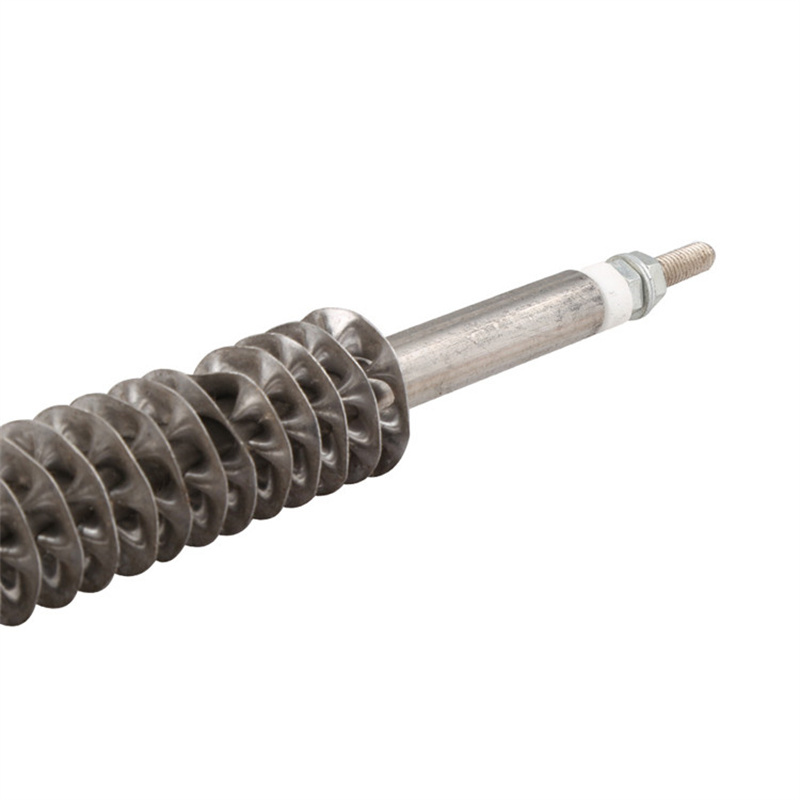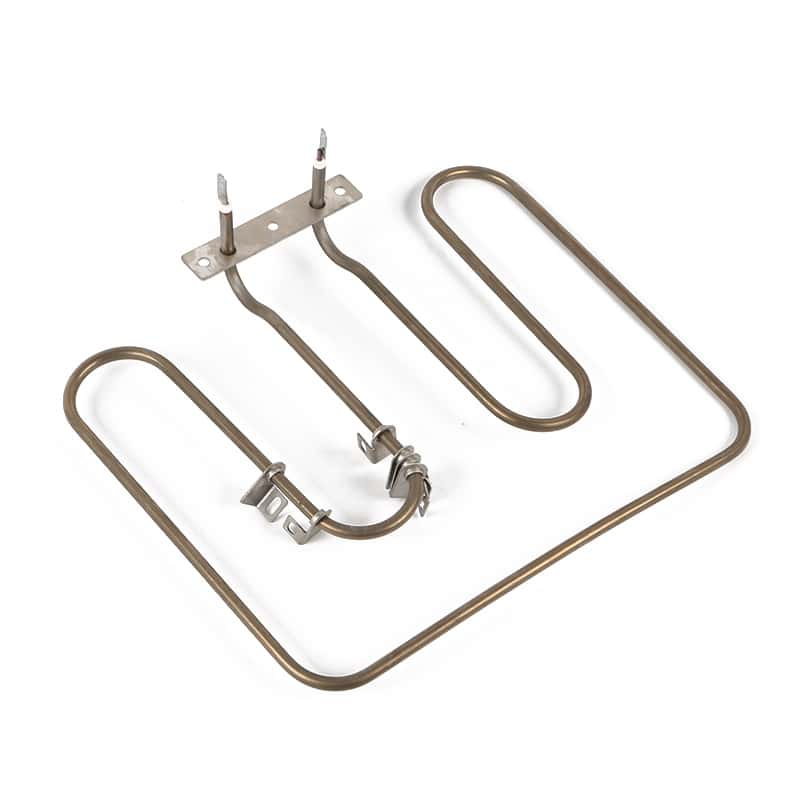Our expert, award-winning staff selects the products we cover and rigorously researches and tests our top picks. If you buy through our links, we may get a commission. Reviews ethics statement
Heat pumps aren't just for heating. How this efficient appliance can save on summer air conditioning bills too. U Type Defrost Heater

Heat pumps can help you minimize your environmental footprint.
Homeowners looking for an energy-efficient alternative to traditional air conditioners in the spring and summer months (and furnaces in the winter) might want to invest in a heat pump. It's a type of heating and cooling system that can help you save money while also minimizing your environmental footprint amid the climate crisis.
Unlike gas-powered furnaces, heat pumps don't burn fossil fuels (unless your electricity comes from fossil fuels), and for those living in milder areas, they may solve both your heating and cooling needs. Here's everything you should know about how heat pumps work; the different kinds of heat pumps available and where to buy them; and how to service these energy-saving machines.
For more tips on saving money, check out how much you can save by unplugging your appliances , setting your thermostat at the right temperature and taking a shorter shower .
A heat pump is a type of home heating and cooling system that uses resources like water and air to regulate the temperature. It's like an air conditioner, but it has a built-in heating system, too. Heat pumps are installed outside your home.
Using electricity and refrigerant, a heat pump is able to turn cold air into hot air during the winter, and hot air into cold air during the summer. It does this by redistributing the heat in the air or ground, and heating it or cooling it with refrigerant as needed.
The standard heat pump has several parts:
The Department of Energy reports that a heat pump can save you approximately 50% in electric costs, compared to electric resistance heating systems, like furnaces and baseboard heaters.
Heat pumps are more environmentally friendly because they are powered by natural elements, like air, water and earth. There are three different types of heat pump systems: air-to-air, water-sourced and geothermal.
An air source heat pump system uses the air outside your home to transfer heat inside. These are particularly notable for dehumidifying spaces, more so than traditional central air conditioning systems, which can also save on energy and cooling costs.
Air source heat pumps are a popular option throughout the US today. Though these heat pumps were previously not an option for colder climates, the technology has evolved significantly in recent years, and many systems are now able to keep up with the added demands of a Northern winter. If your home does not have any ducts, there is a ductless heat pump option known as a mini-split heat pump as well.
Instead of using an outdoor fan and coil, a water source heat pump system uses a heat exchanger. These systems still use refrigerant, turning water into gas and then into water. With an ongoing flow of water, the system uses a loop system to either cool or boil as needed to create the optimal temperature for your home.
Ground source systems, also known as geothermal heat pump systems , use either a ground or water source for power, transferring heat to your home. They can reduce your energy use by up to 60% with added humidity controls, and offer a flexible format that works across a variety of different homes based on things like your property's subsoil and landscape.
Ground source systems are a more expensive option to buy upfront, but have significant savings in energy costs long term.
You can buy a heat pump from a major retailer or through a professional installer.
Heat pumps are available from retailers like these:
Pricing may vary, so it's always a good idea to shop multiple retailers to find the best deal for your new heat pump.
Once you buy your new heat pump, it comes time for installation. A heat pump comes with several parts that require exact precision during installation. Handling refrigerant can also be unsafe for the average homeowner.
Don't worry, you have several options for professional installation. Most retailers offer installation for your purchase at an additional cost, although this may be contracted out to a third-party provider.
You also have the option to hire an independent installation company. If you choose to hire someone for installation, be sure to find a licensed professional for the job. You can find a local installer by checking local ratings and reading reviews from past customers on sites like Google and Yelp.
Although energy-efficient, heat pumps still require maintenance to ensure proper function. Here are some basic ways to maintain your heat pump for extended use:
Many professional HVAC companies offer one-time or regular maintenance packages to assist with your heat pump.
Be warned: A poorly maintained heat pump could cost you. According to the Department of Energy, if you don't keep up with your pump's working needs, it could cost up to 25% more in energy costs, so it is important to make sure that your heat pump is always in top working order.
When you buy a new heat pump, most models come with a warranty.
Ask your retailer or dealer about what warranty options exist for your heat pump so you can be sure your family is protected, no matter what.
As the world continues to witness the growing effects of climate change, it has brought renewed attention to the reduction of harmful emissions in the US. Heat pumps are one way to reduce dangerous fossil fuels while also lowering energy costs. Improved technology today has even made it possible for homeowners in more extreme climates to enjoy the cost savings and environmental benefits that heat pumps have to offer. It's just a matter of which one is right for you.

Freezer Defrost Heater Best Solar Products and Companies